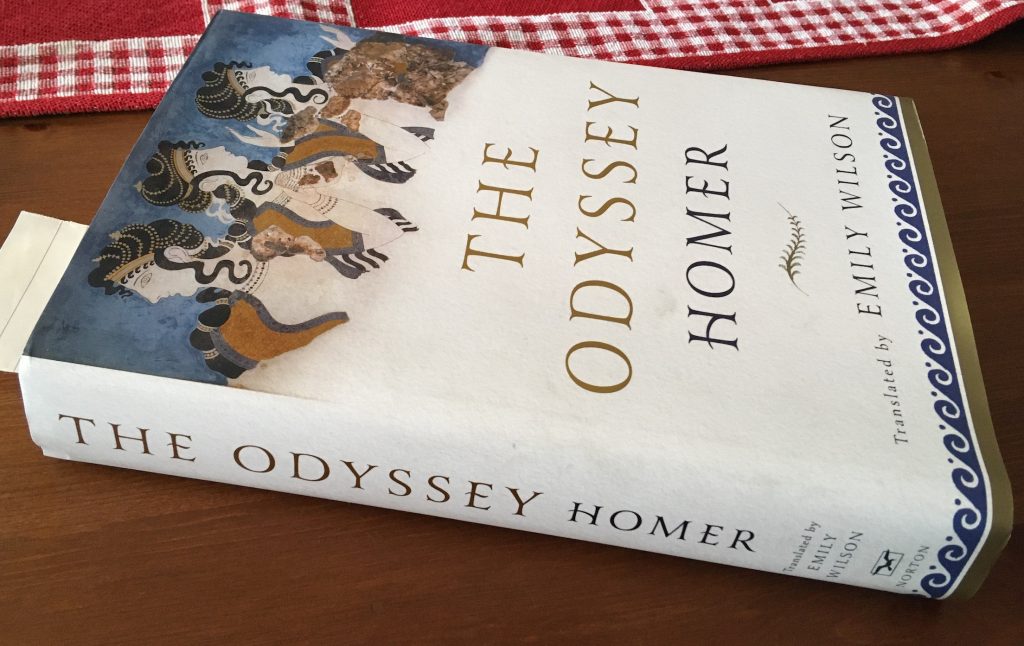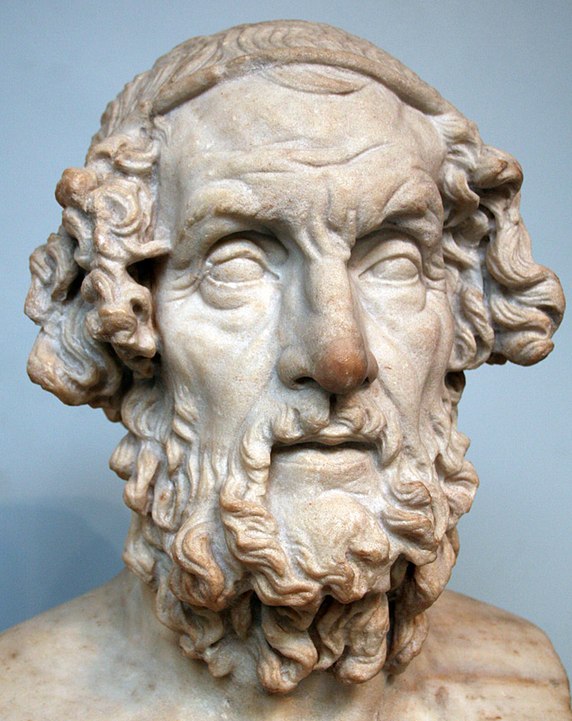Introduction
pp. 1-79
A fairly long but very fine introduction that should inspire any interested reader, and certainly further kindled my enthusiasm. Emily Wilson seriously wants me (and you, and you, …) to go on this journey, for not just its literary and cultural worth but as an exploration of the underlying themes that are deeply relevant to our contemporary human condition and concerns.
We are reminded of just how small an epic story or life can be, and conversely the grandiosity of each and every ordinary life. The epic hero Odysseus is, when it’s all said and done, just a man.
Wilson discusses the narrative structure, the vast tableau of characters – gods and human and neither one nor the other, and geography – getting home is never easy, and time – beginning as it does in medias res – of this great epic tale.
She ponders Homer in depth, but in words and tone accessible to we, the non-classicists; authorship, reception, oral tradition, dialectic and folkloric influences. And his world – the whens and wheres. The temporal; debated vigorously but some consensus at about 8th – 7th century BCE, and place (places!); all at sea, but certainly the Mediterranean and Aegean, and as muddled as the peoples that populate them.
The pages relating to “hospitality” – to somewhat abbreviate the discourse – are especially interesting. It says something I think that the ancient Greek word, xenia, meaning hospitality and a particular sort of friendship, is now associated with the negative connotations of xenophobia, and all the turning away and keeping out that it implies (p.23). It is hard to overlook an analogy in our own time – the plight of refugees on the aforementioned seas and their reception which is more often less than welcoming.
I read with interest the precision in which Wilson defines xenia as “guest-friendship”, differing it from the more familiar, intimate “friendship” but going beyond the somehow rather clinical notion of “hospitality”, and not used very much in everyday English. Living in Germany, I note that “Gastfreundschaft” is very much a concept and a word often used (though practiced or not to various degrees!).
Much more is discussed in the introduction. Women, for instance. Of course as characters – Penelope, Calypso, Athena – but Wilson also sketches how it could have been to be a woman in the ancient world, as an elite or as a slave. And the coming of age and father and son story identified in respect to Telemachus. And the multitude of translations, versions, adaptations of The Odyssey, that continue to inspire.
Translator’s notes
pp. 81-91
Given in the context of this scholarly work but informing well beyond the particular, there is a short essay on the technical aspects of translation, especially as pertaining to classical works, and the choices that have to be made by a translator, and the choices made by this translator.
I am learning here, so I will record just briefly some of Emily Wilson’s comments. The Odyssey was originally composed in dactylic hexameters, that is, in six-footed lines, the conventional meter of ancient Greek verse. Previous English translations have used a variety of techniques, for instance, George Chapman (1615) in iambic pentameter, Alexander Pope (1715) went a step further with rhyming couplets, but most modern translators like Robert Fitzgerald (1961) and Robert Fagles (1996) have shied away from a regular beat in favour of free verse or prose.
Wilson returns to the iambic pentameter, being the convention of “…regular English narrative verse…of Chaucer, Shakespeare, Milton, Byron, Keats..”[p.82] To my mind that makes absolute sense, for this is the “sound” that many people have “heard”, however fleetingly, at school or university, in theatre or film. I haven’t got this far yet, but I imagine that familiarity and the regularity of beat may well provide parameters for a good reading aloud (privately!).
The translator also is firm in her commitment to forgo rhetorical flights of fancy in favour of plainer language and contemporary speech patterns, but I certainly don’t understand that to mean simplification or rigidity; in fact perhaps the opposite is achieved through precision in language, varying metaphors and epithets and what she describes as “a wide range of stylistic registers” [p.84]


